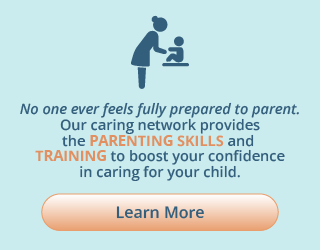Navigating any workplace can feel challenging. From your job’s HR department to asking for a promotion, there’s much to consider.
And when you’re pregnant, your job can suddenly feel more complicated. However, remember that resources are available to help you through pregnancy and beyond. You don’t have to figure out job-related concerns alone.
Missouri’s Alternatives to Abortion Program consists of providers who are ready to help you understand your rights in the workplace, make a career change, and more. You’ll get the support and information you need.
You Are Protected By Law
First, know that your rights are protected by law. You can pursue your professional goals while pregnant.
The Pregnant Workers Fairness Act (PWFA) went into effect on June 27, 2023, and its final regulation went into effect on June 18, 2024.
The PWFA requires private and public sector employers (with 15 or more employees) to provide reasonable accommodations for those with known limitations, including pregnancy and childbirth.
This act means that employers cannot:
- Fail to make a reasonable accommodation for your pregnancy (unless it would cause undue hardship)
- Require you to accept an accommodation other than the reasonable accommodation identified during the process
- Deny you a job or other employment opportunity when you are qualified and need a reasonable accommodation
- Require you to take leave when another reasonable accommodation can allow you to continue working
- Punish or retaliate against you (whether you’re an applicant or current employee) because you:
- Used or requested a reasonable accommodation for your pregnancy under the PWFA
- Reported or opposed unlawful discrimination under the PWFA
- Participated in a PWFA investigation or other proceeding
- Coerced you while you were exercising your rights or were encouraging others to do the same under the PWFA
Discrimination of any kind is unacceptable. You have the right to request reasonable accommodations and continue working while pregnant.
Helpful Strategies
With the PWFA in mind, here are some strategies for interviewing, completing job training, and actively working in the role.
Interviewing
- Having honest conversations with potential employers about your pregnancy doesn’t just alert them to potential accommodations–it helps you assert yourself and communicate your needs.
- Learn about their maternity leave policy. Employers will have different levels and durations of maternity leave. The Family and Medical Leave Act (FMLA) and your state play a significant role (some states have their own policies).
- Beware of “red flags” (i.e., an employer minimizing your concerns, refusing to accommodate your pregnancy, or suggesting that you shouldn’t apply for a role you can reasonably perform). These can point to a job that doesn’t care for its pregnant employees and could violate your rights.
Onboarding/Job Training Process
- While completing onboarding paperwork, discuss your pregnancy and potential accommodations with HR. They’ll work with you and your employer to ensure your needs are met by law.
- Learn more about the job training process. How long does training take? If you work remotely, is there a flexible schedule? If you work outside of the home, what are your training hours? Clarifying these expectations will help you meet your employer’s goals and consider any additional accommodations you need.
- Sometimes, “job training” refers to vocational or professional training that helps you develop needed skills. Our providers can help you find programs that work for your specific situation.
Actively Working
- Initiate open communication throughout your pregnancy and beyond. Voicing questions and concerns to your employer can help you prepare for childbirth, last-minute doctor’s appointments, and more.
- Report any instance of workplace harassment. Remember, you deserve to be treated fairly. Pregnancy is not grounds for harassment, discrimination, or abuse of any kind. If you have concerns about an employer or another employee, report these concerns to HR immediately.
- Remind yourself that you are capable of accomplishing your personal and professional goals. Many women believe it must be one or the other when it comes to motherhood and a career. It’s up to you to decide what’s best for your family–and no matter which path you choose, you are still a good mom.
Our Providers Can Help
Are you searching for job training and placement services? We’re here to help.
You are eligible for Missouri’s Alternatives to Abortion program if you are a pregnant woman who:
- Wants to carry your unborn child to term
- Is a United States resident who lives in Missouri
- Makes less than 185% of the federal poverty level
Our providers offer resources that help with job placement, training, ongoing support, and more.
Please email DFAS.A2APROGRAMS@dss.mo.gov if you have questions or complete our online form.













